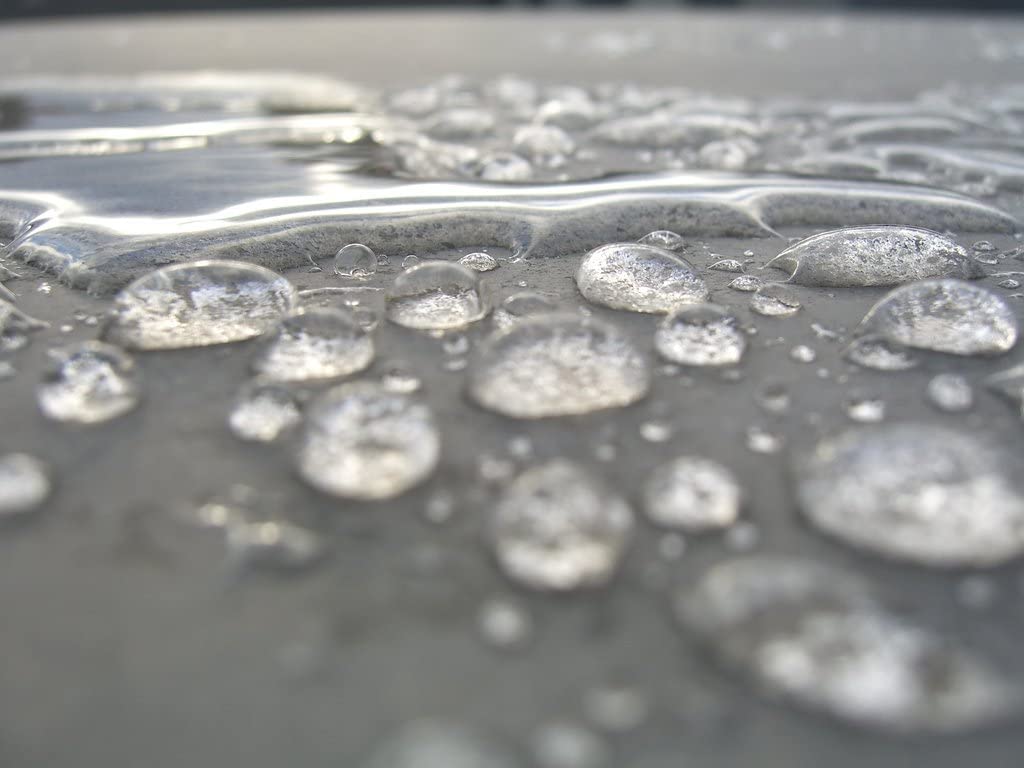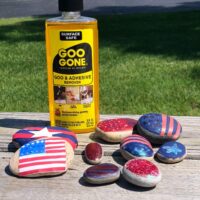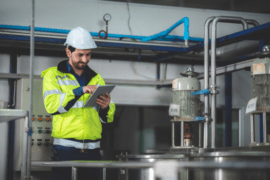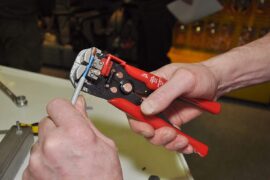In one of his videos, David Odell of Odell Complete Concrete mentioned that the basic idea of applying concrete sealers is to provide the best protection for concretes. By sealing them and preventing the unfavorable effects of extreme temperatures, water erosion, and various contaminants, you’ll have concrete surfaces that will last years. They also improve the concrete’s tolerance against stains and scuffs and, most of all, they prevent moisture problems which can lead to bigger issues in the future.
That said, concrete sealers won’t only prolong the beauty of surfaces, but they can also contribute to the physical longevity of the concretes. This can save you a great sum of money in the long run as it would protect the overall appearance of surfaces.
Ideally, it is best to find a concrete sealer that is food-safe; heavy-duty; fast-drying; easy to apply; non-yellowing; heat and scratch-resistant; and has low-odor and zero VOCs. Ticking these boxes will give you long-lasting sealing effects that are aesthetically and economically beneficial.
These characteristics, however, depend on the types of concrete sealers you are about to choose. If you would ask us, we would suggest getting the polyaspartic sealer or polyaspartic polyurea which is the most versatile among all types of concrete sealers. Compared to others, it is the easiest to apply and offers the best results, both in interior and exterior conditions. One great example is the GlobMarble GP-20 polyaspartic sealer. Of all concrete sealers available, this has the most unbeatable hardness and resistance from abrasion. It can withstand continuous foot traffic and can even adapt to a wide range of temperatures!
If you, however, are only looking for more light-duty to medium-duty concrete sealers, you have more options from the other types such as acrylic concrete sealers, penetrating sealers, polyurethane sealers, and epoxy sealers. To allow you to get a better view of each of them, we picked the best concrete sealers for each type. Find the best one which suits your needs perfectly and don’t forget to check their prices by clicking the buttons below.
Best Concrete Sealers Comparison & Rating
1. GlobMarble GP-20 Polyaspartic Sealer Concrete Coating





GlobMarble GP-20 is the superstar of this list due to its versatility and great capabilities. It can serve as a basecoat and topcoat and perfect for interior concrete, cement-based overlays, and top finish coat on epoxy systems.
As polyaspartic, GP-20 has the best attributes that will benefit all kinds of concrete sealing projects. It provides excellent hardness and abrasion resistance. Of all types of concrete sealers available, this is by far the toughest sealer that can protect a concrete surface for the longest time possible.
The chemical resistance is stellar in a way that it can withstand a great amount of UV rays. It can also stay unmoved even when exposed to high temperatures up to 350°F. This is one impressive ability from this polyaspartic sealer if you will compare it to water-based acrylic sealers that often encounter problems below 50°F.
The color is virtually unaffected when applied. Even when exposed to heavy foot traffic, the appearance and overall condition remain the same.
Also, compared to other types of concrete sealers, GlobMarble GP-20 polyaspartic sealer dries faster. When we personally tested it managed to dry in less than an hour. Most of all, you will be delighted that it can be applied at a wide range of temperatures from -30°F to 140°F. With this, you can be certain that all the issues you might encounter in other concrete sealers would be answered by this one.
2. Colored Epoxies 10002 Clear Epoxy Concrete Sealer


Colored Epoxies 10002 is an epoxy concrete sealer that serves both beauty and unbeatable functionality. Crowned for being one of the concrete sealers that focus on the aesthetic improvement of surfaces, it is no wonder why it is being chosen by a lot of homeowners, contractors, and designers.
It can be used to beautify plywood, concrete, bar tops, and other surfaces by preserving their colors and giving them a stunning high-gloss look. Most of all, there is no risk of fading colors or even yellowing which is despised by everyone.
Colored Epoxies 10002 has a 2:1 mix ratio (2 parts A resin to 1 part B hardener) and is available in a 3-quart, 1.5-gallon, 3-gallon, or 5-gallon kit. Each gallon can cover at 125 to 170 square feet surface. Application is effortless with an odor that is less noticeable compared to other epoxy sealers available.
It has great industrial strength and most of all, it can complement a wide array of styles. Besides the clear epoxy, there are 9 more colors available to give you the freedom you need in choosing the best one that will suit your preference. Also, simply perfect for multicolor flakes, stone series flakes, shining crystal flakes, glitter flakes, wood flakes, and many more.
Behind the beauty it can create, nonetheless, is the outstanding performance and protection. The sealer can create coats that are scratch-resistant, UV-resistant, impact-resistant, and heat-resistant up to 500 F!
3. EcoProCote Eco-Poly Polyurethane Sealer





Eco-Poly polyurethane sealer sits between beauty and functionality. It is available in three options: gloss, matte, and satin. Each finish offers a striking look perfect for any kind of surface.
What really attracted us to this option is the fact that besides its primary function of protecting concretes, it is also very versatile as it can also be applied on wooden surfaces.
Eco-Poly polyurethane will also give you thicker and tougher coats than acrylic-type variants. It will only take you at least 2 coats to achieve the gloss finish you need. A single gallon has coverage of at least 500 to 2000 square feet, depending on the number of coats.
Furthermore, it comes with a great impact, UV, and abrasion tolerance. This translates to a more durable film exterior and better protection from liquid elements.
It can somehow equate to the power of Glob Marble GP-20 polyaspartic, allowing it to bear foot traffic in areas like walkways and even garages. It can also adapt to your interior and exterior concrete sealing needs which is something to really consider. Most of all, the thick application in a single pass can stand an average of 4 to 8 years which is one of its selling points.
4. Masonry Defender Penetrating Concrete Sealer





This Masonry Defender penetrating concrete sealer comes in a silane/siloxane blend that offers great performance. Besides being capable of providing protection against harsh weather, staining, erosion, UV rays, and extreme temperatures, it can also complement a variety of exterior concrete surfaces that need protection.
The blend offers a great layer of seal that makes the surface become untouchable by various elements, especially liquids. Given that the application is done appropriately, the sealer can envelop and get into the capillaries of the surface which results in 100% protection of the concrete. With this, no penetration from moisture, de-icing salt, or any destructive chemicals and elements in the future.
It is available in 1 and 2.5 gallons which should be enough to cover 90 to 150 square feet. However, due to the nature of the blend, keep in mind that it is expected to be applied in thick coats. With this, you might need to purchase more than what you are expecting in order to attain the sufficient layers of coatings needed. But the good thing about this is that its protection can last up to 5 years! Moreover, it offers a great texture compared to the glossy effects of other sealers. This makes it perfect for sidewalks, parking areas, driveways, and patios which proves how heavy-duty this concrete sealer is.
5. Essential Values Acrylic Emulsion Formula Concrete Sealer





This Essential Values acrylic concrete sealer is another choice you can consider as an all-rounder formula. It can be used for both indoor and outdoor concrete surfaces which broaden your choices of application. Besides driveways and sidewalks, it can also be used in fireplaces and indoor wall bricks.
Moreover, it is capable of offering great visual improvements on the concrete, be it stamped or stained. This can be achieved by doing a triple layer of coats which will give you a beautiful glossy appearance. It can also deliver reliable performance in protecting surfaces against moisture, de-icing salt, and chemical absorption.
The solution comes at a 1- or 5-gallon pail. A single 1-gallon package can cover at least 1500 square feet of surface (or 500 square feet for 3 layers of glossy coat). The consistency is relatively thin which is the prevalent issue among acrylic sealers. Though it dries fast within an hour, this means that it won’t last that long as the penetrating and polyaspartic types, hence more frequent reapplication might be needed within a year. Nonetheless, despite the thin nature of its consistency, you can be sure that liquids and moisture wouldn’t get the chance to penetrate the surface for months.
Best Concrete Sealers - Buyer's Guide
The type of concrete sealer is the major consideration to think about. Keep in mind that each type has its own advantages and disadvantages. For instance, while acrylic sealers are the easiest type to apply, they are the least durable sealer that can last years. Penetrating sealers, on the other hand, excel really great when it comes to durability but can be really challenging to apply. The same goes for polyurethane which is not moisture tolerant and commonly contains contain high levels of VOC.
The purpose of the concrete sealer will help you determine if your choice will complement the surface you are planning to seal. For instance, if want to give your countertop coats of sealer, an epoxy type is the best to use. Due to its perfect glossy look and texture, cleanup is a picnic which is primarily essential for food safety and hygiene procedures. On the other hand, if you want something that can bring great protection to concrete, you would probably look for silane concrete sealers. It excels in sturdiness and protection but if you don’t want the color of the concrete to be altered greatly, this is probably not a good choice due to the fact that this is normally applied in multiple thick coatings.
Besides the capability of some concrete sealers in complementing the surfaces that get in contact with foods, it is also important to check if they are safe to be used during the application. Keep in mind that concrete sealers commonly come with volatile organic compounds or VOCs. It can be both dangerous to the environment and to the health of the person applying the sealer. There are some solutions now offering low to zero VOCs so make sure to check if the product you’re going to choose is at least low in VOC or VOC-free.
The protection the sealer can provide is the first reason why you would want to purchase a bucket of it. Again, the strength of the concrete sealer depends on their types and this is an important thing to realize. If you have the means (and the will) to reapply them after every few months, opt for types like acrylic concrete sealers. On the other hand, if you want to have something that would last for years, get heavy-duty types like penetrating and polyurethane sealers that can last 4 to 8 years.
Best Concrete Sealers - FAQs
Besides being able to last for years, exterior concrete sealers should be able to protect the concrete against lawn care chemicals, water damage, fading, deicing salts, tire marks, oil stains, dirt, mud, and mold.
Silane penetrating and polyurethane concrete sealers are some of the best choices in terms of longevity. They are thick and can be used on surfaces that deal with high foot traffics.
For concrete countertops, look for heavy-duty concrete sealers that are food-safe, zero VOC, heat- and scratch-resistant. One good example is an epoxy concrete sealer that is commonly used in the kitchen, industrial, and hygiene sites.
The application of the concrete sealer depends on its type. Some are better to be sprayed since they are not formulated to be rolled. Nonetheless, there are also those solvents that evaporate slowly which suits rolling better. Water-based polyurethane sealers, on the other hand, are known to be very demanding in terms of application. They are usually not capable of getting the right pressure levels important for even coats of spray. With this, instead of the use of the typical pump-up sprayers, they should be used with a high-pressure and low-volume airless sprayer.











